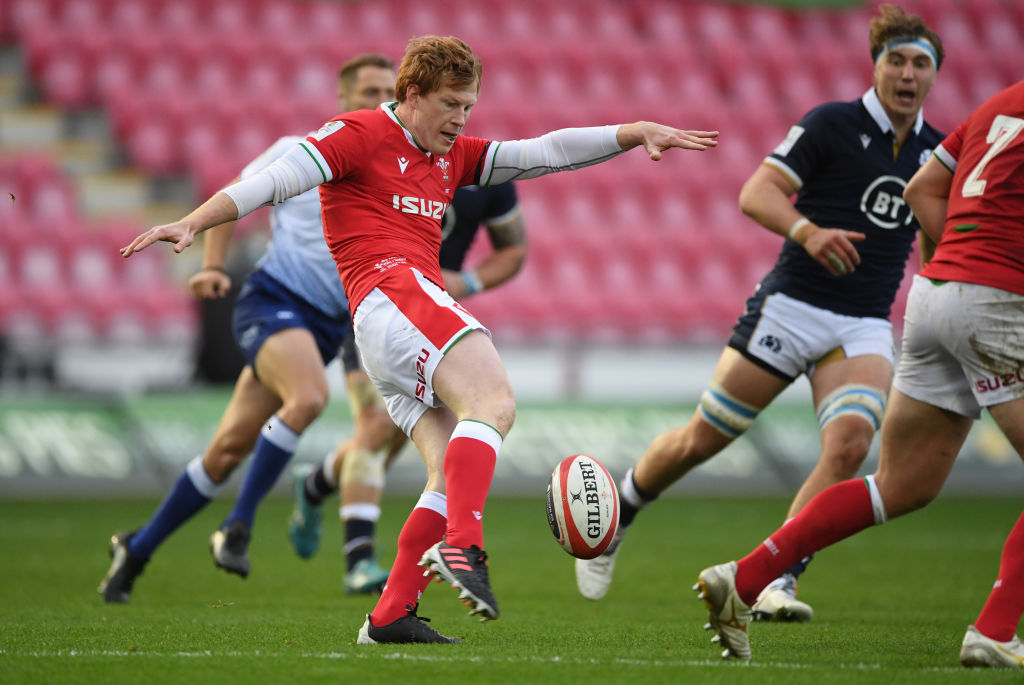 A Leicester side which is hurt, angry, and staring at a third Heineken Cup pool exit on the bounce will probably have enough rounds left in the magazine to shoot down the Ospreys at Welford Road today. But whereas a decade ago you would have bet your house on the Tigers to win at home in the European Cup, now you wouldn’t bet your doormat on the outcome.
A Leicester side which is hurt, angry, and staring at a third Heineken Cup pool exit on the bounce will probably have enough rounds left in the magazine to shoot down the Ospreys at Welford Road today. But whereas a decade ago you would have bet your house on the Tigers to win at home in the European Cup, now you wouldn’t bet your doormat on the outcome.
Richard Cockerill said after Leicester had failed to secure a losing bonus point at Toulouse last weekend – their sixth straight Heineken Cup loss in France – that the nub of the matter is that the spending power of the Top 14 clubs puts their English counterparts at a massive disadvantage.
It is hard not to warm to Cockerill, who is a passionate, courageous character who wears his heart on his sleeve – and the Tigers director of rugby has a point, because double the budget to spend on players is a clear advantage in the transfer market. However, Cockerill protests too much about not being able to compete on a level playing field.
Harlequins, the team that beat Leicester to become English champions at Twickenham in May, and then rubbed in their dominance with a comprehensive victory at Welford Road a few weeks ago, have a smaller squad. With most of their overwhelmingly English outfit coming through the Harlequins academy system their wage bill is also likely to be smaller than Leicester’s, who these days have almost as many imports as they do homegrown players.
Yet, Harlequins managed to beat their Top 14 opponents, Biarritz, with a four-try bonus point last weekend – and although Biarritz are not as big a club as Toulouse, they are still one of the French league’s heavy-hitters, enjoying the backing of IT giant Cap Gemini.
 Cockerill is probably as dedicated as they come, but his argument that it’s only money that talks in the modern game does not stand up to scrutiny. Harlequins are not alone in bucking the trend. The Chiefs are the current Super 15 champions, but the New Zealand franchise is a financial minnow compared to Leicester. They have a handful of New Zealand internationals, just as the Tigers have a handful of England players, and they also have a history of growing their own rather than importing them.
Cockerill is probably as dedicated as they come, but his argument that it’s only money that talks in the modern game does not stand up to scrutiny. Harlequins are not alone in bucking the trend. The Chiefs are the current Super 15 champions, but the New Zealand franchise is a financial minnow compared to Leicester. They have a handful of New Zealand internationals, just as the Tigers have a handful of England players, and they also have a history of growing their own rather than importing them.
The belief that you set your own standards and have the coaching know-how and systems to produce champions, is something that the Chiefs, guided by coaches like Wayne Smith, hold dear – and the Tigers used to be the same. But when you hear Leicester coaches take refuge in the complaint about not having enough money to compete, the inescapable conclusion is that their self-belief has been eroded.
There is evidence for this on the pitch. Where the Leicester pack is still among the best scrummaging units in the Premiership, their lineout and driving maul are nowhere near as brutally efficient as they were when Martin Johnson and company were firing Neil Back over the line. Nor are any of their forward carriers as consistent, or bruising, as Johnson or Martin Corry, while they do not have a link-man to compare with Back.
To be fair, Julian Salvi is an accomplished openside when it comes to slowing opposition ball and taking good support lines, but when the Australian was ruled out by injury against Toulouse the recast Leicester back row had a pedestrian look to it.
Selection is a subjective business, but just as Cockerill blasted Ben Youngs for a duff call with a tap-and-go instead of kicking a penalty in the 23-9 reverse at Toulouse, it could be argued he has made a few himself. When it comes to important tactical selections, whether in his starting line-up of off the bench, some of his decisions this season have not been the best.
For instance, the back row he picked against the French champions was too one-paced and unbalanced. No-one can take issue with Cockerill’s decision to go with Steve Mafi at blindside, but he played into the hands of the fast Toulouse flankers, Thierry Dusautoir and Yannick Nyanga, by selecting two non-speedsters, with Jordan Crane at No.8, and another No.8, Thomas Waldrom, at openside.
The French duo were yards faster in thought and deed at the breakdown, and yet Cockerill had an option to counteract them because he had an openside on the bench in Richard Thorpe.
Furthermore, the former London Irish flanker had played well in the away victory over Sale, and yet when he eventually got on in the 76th minute it was too late to remedy anything. Another player who sat it out for the full 80 (again) was George Ford, and while I don’t intend to go through the whole Ford – Toby Flood debate again here, it is strange that, as the game slipped away from the Tigers in the third quarter, Cockerill did not switch fly-halves.
It was not as if Flood had taken tactical control and was carving out countless opportunities. Against middle to lower table Premiership opposition Flood usually picks out a front row mismatch or two to exploit, but when the defensive stakes are raised against elite sides – or Ben Youngs does not produce a virtuoso break from nowhere – the Leicester attack looks blunt.
You cannot fault Cockerill’s Leicester for honest sweat, toil and commitment, but, at the moment, when it comes to the guile and playmaking flair supplied in the past by the likes of Pat Howard and Austin Healey, they are struggling.

1 Comment
You must be logged in to post a comment Login
Leave a Reply
Cancel reply
Leave a Reply
You must be logged in to post a comment.



























Pingback: วิเคราะห์บอลวันนี้